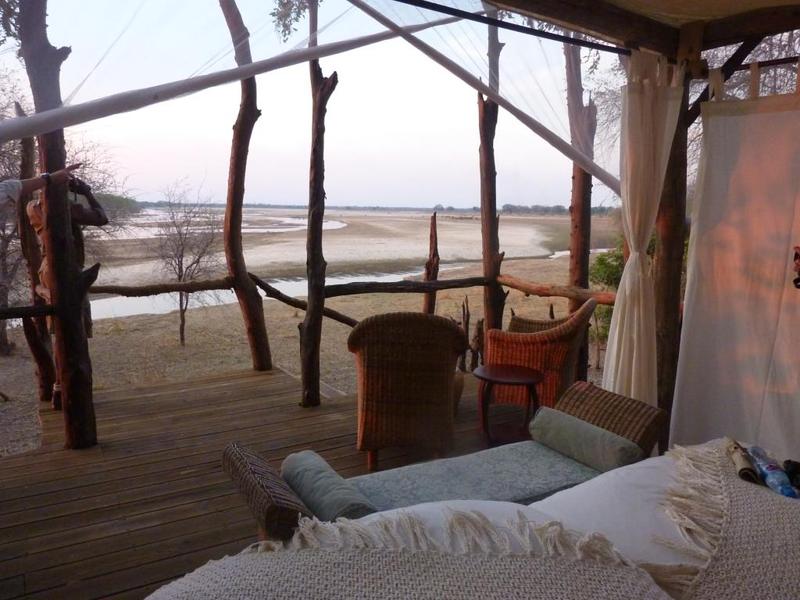Kalamu Trails Zambia Explorations
- Kalamu Lagoon Camp, Zambia
- Culture & Nature

| from $1,185* per person | 4 Days | June-October |
| Comfort accommodations | Exertion level: 3 | |
| Operator: Natural Migrations | 12 people max | |
Loading map, please wait...
Locations visited/nearby
Zambia, Africa
Itinerary
Day 1: Kalamu Lagoon Camp, South LuangwaSettle into Kalamu Lagoon Camp and enjoy an afternoon exploration of the area by game drive. Overnight in camp. Kalamu Lagoon Camp is situated in the Luamfwa Concession in the southern sector of the South Luangwa National Park. Accommodation consists of 8 safari-style reed and canvas tents, each en-suite with both an indoor and outdoor shower. The camp's dining and bar area are under a canopy of giant ebony trees overlooking a beautiful permanent lagoon just off the Luangwa River. A pool and viewing deck area located to the side of the camp offer spectacular views of the lagoon. Activities at Kalamu Lagoon Camp include day and night game drives. The latter offer not only the chance of that elusive leopard but also creatures like genet, civet, elephant shrew and white-tailed mongoose.
Day 2: Chinengwe Riverbed Camp, South Luangwa
On the first morning, after a continental breakfast, depart Kalamu Lagoon Camp by vehicle. Head eastwards where you will be dropped off at Mphande Plains. From here trek with your guide down towards the Mapandwe Stream and head downstream to the Luangwa River, where you have lunch on its banks. In the afternoon, continue the walk westwards and explore the Chinengwe area, arriving at Chinengwe Riverbed Camp in time for a sundowner and a shower. Chinengwe Riverbed Camp is a tented camp situated in the Luamfwa Concession in the southern sector of the South Luangwa National Park. Accommodation consists of three dome-style tents erected on the base of the Luangwa River, right on the edge of the water. Each tent has its own bucket shower and hand wash basin, with hot water brought to the tent by staff when you wish to shower. The camp's dining area is set up in the riverbed, with meals served around the fire.
Day 3: Kalamu Star-bed Camp, South Luangwa
Today, cross the river in a mokoro and explore the northern bank, up to the Kalauzi Stream, stopping for lunch at the confluence of the Kalauzi Stream. Later in the afternoon cross back over to the southern side where you will walk along the banks of the Luangwa River to Kalamu Star-bed Camp. This beautiful camp is situated in the Luamfwa Concession in the southern sector of the South Luangwa National Park. Accommodation consists of three timber platforms, raised 9.84 feet above the ground, with twin beds under mosquito nets and the stars as the roof! Each platform has its own bathroom with hot and cold running water. The camp's dining area is set up on the river bank with meals served around the fire.
Day 4: End of trail
After an early morning continental breakfast at Kalamu Star-beds, trek downriver in the direction of Kalamu Lagoon Camp. At the tea stop, you will be met by a vehicle which will transport you back to Kalamu Lagoon Camp in time for brunch on the lagoon.
More information from Natural Migrations:
- View trip on provider's website
www.naturalmigrations.com/KalamuTrails.htm… - Company profile, experience, and history
- View all of their trips
- Email this trip page to a friend
-



Comments from Facebook